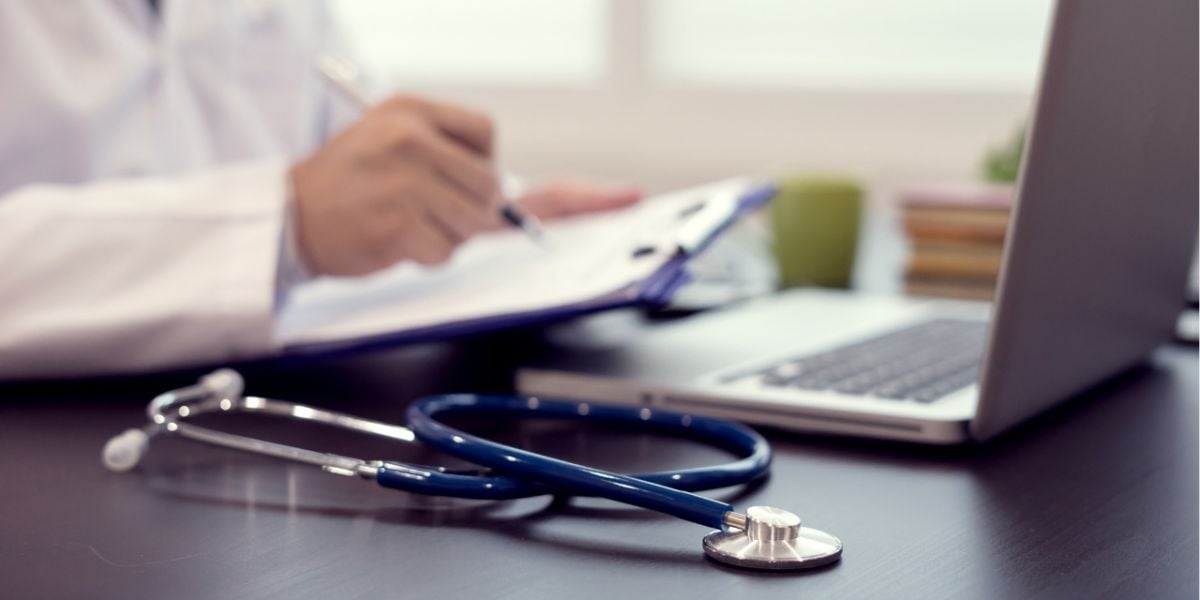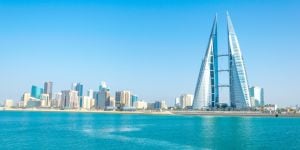
Bahrain's healthcare system offers robust facilities and high standards of care, catering effectively to its diverse population, including citizens, expatriates, and the broader workforce. This article aims to provide expatriates with a detailed overview of the healthcare services available in the country. It will explore the offerings of both public and private hospitals and delve into specialized areas such as mental health, maternity and neonatal care, pediatrics, physiotherapy, and alternative treatments.
An overview of the health system in Bahrain
The healthcare system in Bahrain is managed by the National Health Regulatory Authority (NHRA) and includes both public and private sectors. Public healthcare offers substantial support for Bahraini citizens, while non-citizens generally pay for services themselves or through employer-provided insurance. Expatriates often prefer the private sector, which avoids long waits and provides more attentive care.
Main features of the healthcare system
Public health sector: Services are free or low-cost for Bahraini nationals. Expatriates have access but usually incur minimal charges.
Private health sector: Offers extensive services with shorter wait times and modern facilities.
Health insurance: Required for all expatriates, provided by employers at the basic level.
Emergency services: Available 24/7 in all hospitals.
Public healthcare in Bahrain
Bahrain's public healthcare system is highly regarded, providing ample services and receiving significant funding from the state budget. Across the Kingdom, residents have access to a wide network of healthcare facilities.
Salmaniya Medical Complex (SMC)
Salmaniya Medical Complex (SMC) is located in Manama and serves as the largest public hospital in Bahrain. It offers a full range of medical services, including specialties in cardiology, oncology, pediatrics, orthopedics, emergency care, and maternity services. Notably, it features a Neonatal Intensive Care Unit (NICU) for high-risk neonates.
King Hamad University Hospital (KHUH)
King Hamad University Hospital (KHUH), situated in Busaiteen, is known for its advanced medical and specialty care. It focuses on neurology, cardiology, oncology, pediatrics, and emergency services. KHUH is particularly noted for its expertise in maternity and neonatal care, catering to complex health needs.
Bahrain Defense Force (BDF) Hospital
The Bahrain Defense Force (BDF) Hospital, located in Riffa, primarily serves military personnel but also accepts civilian patients. It specializes in trauma care, cardiology, orthopedics, and psychiatric services, providing advanced treatment for PTSD, including various psychotherapeutic interventions.
Mohammed Bin Khalifa Bin Salman Al Khalifa Specialist Cardiac Centre
Lastly, the Mohammed Bin Khalifa Bin Salman Al Khalifa Specialist Cardiac Centre in Awali specializes in cardiac care. The center is renowned for its comprehensive cardiac services, offering a variety of surgical and non-invasive treatments.
Private healthcare in Bahrain
The integration of private health insurance into Bahrain's healthcare system is quite extensive and frequently utilized by both foreigners and nationals who seek quicker services. Private hospitals in Bahrain are equipped with modern medical machines and provide high-quality care.
Bahrain Specialist Hospital (BSH)
Bahrain Specialist Hospital (BSH) in Juffair is renowned for its specialized services in cardiology, gastroenterology, plastic surgery, pediatrics, and maternity care. BSH is particularly focused on providing comprehensive services for expectant mothers and newborn babies, establishing itself as one of the leading private hospitals in the industry.
Royal Bahrain Hospital (RBH)
Located in Manama, the Royal Bahrain Hospital (RBH) offers specialties in maternity, pediatrics, cardiology, and dermatology. RBH is well-regarded for its efficient outpatient services and its ability to address critical health issues promptly.
Ibn Al Nafees Hospital
Ibn Al Nafees Hospital in Zinj provides specialized care in gynecology, ENT, general surgery, and psychiatry.
Al Kindi Hospital
Al Kindi Hospital, also in Manama, offers services in internal medicine, gynecology, pediatrics, and maternity. It features a dedicated unit focused on personalized care for pregnant women and neonatal care.
American Mission Hospital (AMH)
American Mission Hospital (AMH), with locations in Manama, Saar, and Amwaj, is one of the oldest private hospitals in Bahrain. It offers a wide range of comprehensive healthcare services, including general surgery, pediatrics, obstetrics, and dentistry.
Maternity care in Bahrain
Maternity and neonatal care in Bahrain are readily available through both private and public healthcare facilities, offering a wide range of services tailored to meet the needs of mothers and their babies.
Public institutions like Salmaniya Medical Complex provide maternity services at subsidized rates. Meanwhile, private hospitals offer affordable and specialized options, catering to those who prefer private care.
Royal Bahrain Hospital (RBH) is highly sought after for its comprehensive maternity packages. These packages include prenatal consultations, labor and delivery services, and postnatal care, all provided within nurse-assisted suites designed to ensure comfort and safety.
Al Kindi Hospital offers a unique maternity experience, with engaging prenatal visits and relaxing birth suites. These suites are designed to allow mothers to customize their maternity experience, ensuring their personal comfort is not compromised during this critical time.
American Mission Hospital (AMH) provides top-quality maternity services. Expectant mothers at AMH can access a wide array of services, from prenatal care to advanced postnatal services, including specialized care for newborns who are premature or have specific health challenges. This comprehensive approach ensures that both mother and child receive the best possible care throughout the maternity journey.
Giving birth
In Bahrain, the decision between opting for a natural birth or a C-section is primarily influenced by medical needs and personal choices, with natural births being more prevalent in both public and private healthcare settings.
Private hospitals, including the Royal Bahrain Hospital and Al Kindi Hospital, offer comprehensive maternity packages. The costs for natural births typically range from BHD 500 to BHD 1,000 (USD 1,325 to USD 2,650), while C-sections can cost between BHD 1,500 and BHD 2,500 (USD 3,975 to USD 6,625), depending on various factors like the complexity of the delivery and the range of services included.
Postnatal care in Bahrain is comprehensive, with facilities providing essential follow-up consultations, lactation support, and regular newborn screenings. Many hospitals also offer specialized packages that encompass physiotherapy for new mothers and developmental assessments for infants, promoting a smooth transition into postnatal life. Public hospitals, such as the Salmaniya Medical Complex, provide these services at significantly reduced rates, making them accessible to a broader segment of the population.
Pediatric care
Pediatric services in Bahrain are comprehensive and cater to the diverse health needs of children from infancy through adolescence. Both the public and private sectors maintain robust pediatric practices, ensuring that all children receive high-quality care.
Dr. Abduljabbar Abbasi at Bahrain Specialist Hospital (BSH) is a highly respected pediatrician known for his expertise in managing chronic pediatric conditions and conducting routine check-ups. His approach to pediatric care is renowned for being exceptionally caring, making him one of the most sought-after pediatricians in the region.
Dr. Ayman Al Saati, based at Royal Bahrain Hospital (RBH) in Al Ain, specializes in the management of chronic diseases such as asthma, alongside immunization and monitoring developmental and growth evolution in children.
Al Kindi Hospital features a specialized pediatric clinic that offers a full range of services, including vaccinations and programs to promote growth and development, ensuring comprehensive care from early childhood.
Salmaniya Medical Complex (SMC) provides essential pediatric services, including routine check-ups and immunizations, specifically catering to expatriate children. Operated by foreign practitioners, SMC also manages various childhood ailments, ensuring that expat families have access to quality pediatric care that understands their unique needs.
Mental health services in Bahrain
The provision of mental health services in Bahrain has expanded significantly, in both private and public sectors, in response to the increasing number of individuals experiencing various mental health conditions, including anxiety, depression, PTSD, and family-related issues.
Public mental health providers
Salmaniya Medical Complex (SMC) offers psychiatric treatment for individuals suffering from mental health issues such as depression, anxiety, and stress.
Bahrain Defense Force (BDF) Hospital specializes in psychiatric care for trauma patients, including veterans, providing targeted support for those with complex mental health needs.
Private mental health providers
Ibn Al Nafees Hospital features Dr. Nazli Al Ansari, who specializes in EMDR therapy and family therapy. Her expertise is particularly focused on helping patients recover from trauma, with a hands-on approach to dealing with mental health challenges.
Seema Al Shirawi runs a notable practice offering core processing psychotherapy and craniosacral therapy, focusing on trauma recovery and emotional healing.
Royal Bahrain Hospital (RBH) includes Dr. Mohammed Azzam, a psychiatrist who specializes in Cognitive Behavioral Therapy (CBT) for managing stress, anxiety, and depression.
Bahrain Specialist Hospital (BSH) features Dr. Khaled M. Dabdoub, who offers a comprehensive range of mental health services, including individual and family therapy, addressing a broad spectrum of mental health issues.
Insight Therapy is home to Dr. Wafa Abou Foul, who focuses on trauma care and provides family therapy using a variety of therapeutic techniques.
Head and Heart Therapy Center includes Dr. Diala Elayyan, who specializes in child and family therapy aimed at improving emotional health
Emergency care in Bahrain
Emergency medical services in Bahrain are well-developed, with both public and private hospitals equipped to handle urgent medical situations. The national emergency hotline number is 999, which can be dialed for immediate assistance across the country.
Public emergency care
Salmaniya Medical Complex (SMC) operates a comprehensive 24-hour emergency room that handles trauma, medical emergencies, and other acute, life-threatening cases. It is widely recognized among expatriates and locals alike as a leading provider of emergency medical services due to its efficiency and the quality of care provided.
Bahrain Defense Force (BDF) Hospital offers specialized trauma and emergency care for both military personnel and civilians. The hospital is equipped with state-of-the-art facilities, ensuring high-quality treatment and rapid response to emergency conditions.
Private emergency care
Royal Bahrain Hospital (RBH) provides a broad range of emergency services with specialists available around the clock. The hospital is equipped to respond to various emergencies, supported by advanced facilities and a team of trained emergency care professionals.
Bahrain Specialist Hospital (BSH) features dedicated trauma emergency care and advanced life support services. The hospital ensures barrier-free access to all patients and maintains a high standard of care, utilizing the latest medical technologies and practices available in emergency medicine.
Ambulance services
Ambulance services in Bahrain are well-structured to cater to both residents and expatriates. Public ambulance services, managed by the Ministry of Health, are available free of charge to everyone, including expatriates.
Private hospitals offer ambulance services at varying costs, typically ranging from BHD 35 to BHD 50 (approximately $93 to $133) per transport, depending on the distance and level of care required.
In the event of an emergency, it is crucial to remain calm and dial the emergency hotline immediately, providing the operator with clear details about the nature of the emergency and your exact location. While waiting for the ambulance, if you are trained, administer necessary first aid to stabilize the patient. Upon arrival, the emergency medical team will assess the situation and transport the patient to the appropriate medical facility for further treatment.
For non-emergency medical transportation, private ambulance services can be arranged through hospitals or private providers, with fees varying based on the service level and distance. It is advisable for expatriates to have comprehensive health insurance that covers emergency medical services, including ambulance transportation, to avoid unexpected expenses.
Health insurance for foreigners in Bahrain
It is mandatory for foreign workers in Bahrain to obtain health coverage. Thus, employers should ensure that the employees have at least minimal health insurance. The details of each scope of such insurance, however, will depend greatly on the employer's specifics and type of work.
Basic health insurance
This foundational insurance plan typically covers immediate medical consultations, emergency procedures, and other necessary treatments. However, it often does not include specialized services or dental care. Due to these limitations, many foreign employees find that this basic coverage does not fully meet their health needs, prompting them to seek more extensive private insurance policies.
Additional coverage insurance
To supplement the gaps left by basic employer-provided plans, many foreign employees opt for private health insurance. International health insurance companies offer plans that provide more extensive coverage, including continuous specialized care, maternity services, and major surgeries.
Good to know:
For service workers and domestic helpers in Bahrain, who often fall into the low-income category, the basic health insurance provided by employers is typically the only form of medical coverage available. This basic insurance usually allows these employees to manage some of their medical expenses, covering services at select public and sometimes private clinics determined by the employer.
Physiotherapy and chiropractic care in Bahrain
Physiotherapy and chiropractic services in Bahrain are readily available, catering to patients in recovery from traumas, surgeries, or managing chronic illnesses. These specialists provide essential care that helps individuals regain function and manage pain effectively.
Leading physiotherapy clinics
PhysioRelief, located in the Seef area, offers a range of services, including manual therapy, dry needling, cupping therapy, and rehabilitation for sports-related limitations. The clinic also features a modern gym specifically designed for rehabilitation and recovery purposes.
The Rashid Center for Rehabilitation specializes in treating patients with chronic pain and those recovering from surgery. The center focuses on providing personalized treatment plans that address the unique recovery needs of each patient.
Osteopathy and chiropractic services
Back on the Move offers comprehensive services, including osteopathy, chiropractic adjustments, sports massage, and lymphatic drainage massage. The clinic prioritizes pain management and treatment of the spine, making it a crucial resource for those with back issues and related conditions.
ChiroMed Clinic caters to individuals suffering from joint pain, spinal problems, and injuries related to the skeletal muscles. The clinic offers various services to provide relief and improve mobility for patients with these specific health concerns.
Homeopathy and alternative medicine in Bahrain
The interest in alternative medicine in Bahrain is on the rise, with various clinics offering treatments such as homeopathy, Ayurveda, and other Eastern medicinal practices. These clinics cater to a range of ailments, providing patients with more natural treatment options.
Homeopathy clinics
The Ahmed Al Shafei Clinic is renowned for its customized homeopathic treatments targeting chronic conditions such as allergies, asthma, and chronic pain. The clinic prioritizes a comprehensive understanding of each patient's unique needs, developing tailored treatment plans based on thorough assessments. Patients value this approach as it focuses on holistic well-being, addressing the entire body rather than just isolated symptoms.
The Bahrain Homeopathy Medical Centre offers a diverse array of homeopathic remedies specifically aimed at treating respiratory issues, skin diseases, and other chronic conditions. The center is dedicated to providing natural, earth-friendly cures, emphasizing sustainable practices in its treatment methodologies.
Ayurveda and Eastern medicine centers
Ayurmana Ayurvedic Center specializes in Ayurvedic detoxification processes and herbal treatments. It offers customized wellness programs that include dietary and lifestyle changes aimed at addressing issues such as stress, digestion problems, and overall health enhancement. The center's approach is rooted in traditional Ayurvedic practices, which focus on balancing the body's energies through natural means.
Lotus Holistic Therapy Center provides a variety of treatments, including acupuncture, reflexology, and aromatherapy, targeting stress, chronic pain, and anxiety. The therapies offered aim to restore balance and promote well-being by harnessing the principles of holistic health. This center uses diverse holistic therapies to treat and manage conditions, emphasizing the body's intrinsic ability to heal and maintain balance.
Healthcare costs for expats in Bahrain
The cost of healthcare in Bahrain varies significantly based on the type of service and the institution providing it. Here is an analysis of healthcare costs for different income groups, along with examples of hospitals and clinics suitable for each category.
For low-income workers
Low-income workers predominantly seek treatment at public hospitals, which are more affordable and geared toward a ready clientele. These workers often have limited options for private care due to cost constraints.
For instance, basic consultation with a doctor in a public hospital costs approximately 7 BHD (USD 18.60). Public clinic visits can range from 10 – 15 BHD (USD 26.50 – USD 40).
Emergency services in public hospitals are sought after because they offer minimal fees and accessible care.
For middle-income workers
Expatriates in the middle-income bracket often have access to private healthcare facilitated by insurance provided by their employers.
A typical consultation at a private hospital costs between 20 – 40 BHD (USD 53 - USD 106).
The average fee for childbirth in a private hospital ranges from 1000-1500 BHD (USD 2,650 - USD 4,000).
Minor surgical procedures can cost between 500-1000 BHD (USD 1,325 - USD 2,650).
For high-income individuals
High-income individuals, including executives, usually benefit from comprehensive insurance policies covering a wide range of services, including advanced treatments and elective procedures.
Consultations in premium care at private hospitals can cost between 40 - 100 BHD (USD 106 - USD 265).
Premium maternity packages may cost around 5,000 BHD (USD 13,250).
Specialized surgeries can directly cost about 10,000 BHD (USD 26,500).
Overall, the healthcare system in Bahrain is comprehensive and designed to ensure that both citizens and expatriates can efficiently access high-quality medical services. Nevertheless, understanding the nuances of Bahrain's healthcare system—including the costs and services available—is essential for all residents, whether they are seeking routine checkups, specialized treatment, or mental health support.
Useful links:
National Health Regulatory Authority (NHRA)
King Hamad University Hospital
Bahrain Defense Force Hospital
We do our best to provide accurate and up to date information. However, if you have noticed any inaccuracies in this article, please let us know in the comments section below.











